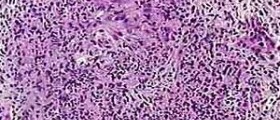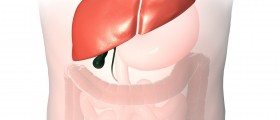
Tubulointerstitial nephritis is inflammation of renal tubules and interstitium responsible for reduction in renal function. Acute tubulointerstitial nephritis generally develops as a consequence of drug reactions or infections while chronic form of the disease results from certain genetic and metabolic disorders, obstructive uropathy or prolonged exposure to environmental toxins and drugs. Even long-term intake of certain herbs may cause chronic tubulointerstitial nephritis. If diagnosed on time, damage to the kidneys is reversible and once treated, kidneys reestablish their function.
Acute Tubulointerstitial Nephritis and Its Causes
Acute tubulointerstitial nephritis (ATIN) is characterized by inflammatory infiltrate and edema both of which affect the renal interstitium. Such inflammation develops gradually over days or months. It is estimated that 95% of all patients develop the condition due to an allergic drug reaction. There is also one syndrome which includes acute tubular nephritis and uveitis, and whose cause has not been identified yet. ATIN is a serious medical condition. It leads to renal insufficiency and failure which may progress into chronic renal failure.
As it has already been mentioned ATIN is closely related to intake of certain drugs. The most common medications capable of causing such type of nephritis are antibiotics including β-Lactam antibiotics, Ciprofloxacin, ethambutol, indinavir, isoniazid, macrilides, rifampin, tetracycline, trimethoprim, sulfamethoxazole, vancomycin. Furthermore, damage to interstitium may be associated with intake of anticonvulsants, diuretics, NSAIDs and other drugs (e.g. allopurinol, captopril, interferon alfa etc. ).
There is also chance for ATIN to develop as a consequence of previous infection (bacterial, viral or fungal). Metabolic illnesses capable of causing such kidney inflammation include hyperuricosuria, tumor lysis syndrome etc. Finally, the condition can be connected with some immunologic illnesses and tumors (multiple myeloma and lymphoma).
Acute Tubulointerstitial Nephritis Symptoms and Signs
The disease remains asymptomatic until renal failure completely develops. There is polyuria and nocturia, fever, urticarial rash (characteristic for drug-induced ATIN) and eosinophilia. Abdominal pain and weight loss are two more characteristics of the disease. Peripheral edema and hypertension develop due to fluid retention.
Acute Tubulointerstitial Nephritis Diagnosis and Treatment
The doctor assumes that a person is suffering from ATIN after taking patient's history, performing physical exam and urinanalysis. However, definitive confirmation can be achieved after kidney biopsy and pathohistological examination of taken samples.
Immune-mediated and in some cases drug-induced tubulointerstitial nephritis respond well to corticosteroids. It is essential to identify the underlying cause of inflammation and bring it under control. Additional help is obtained from supportive measures such as regular control of blood pressure, treatment of anemia etc. Disease progression can be decelerated with ACE inhibitors and angiotensin II receptor blockers.







-Symptoms,-Diagnosis,-Treatment_f_280x120.jpg)









Your thoughts on this
Loading...